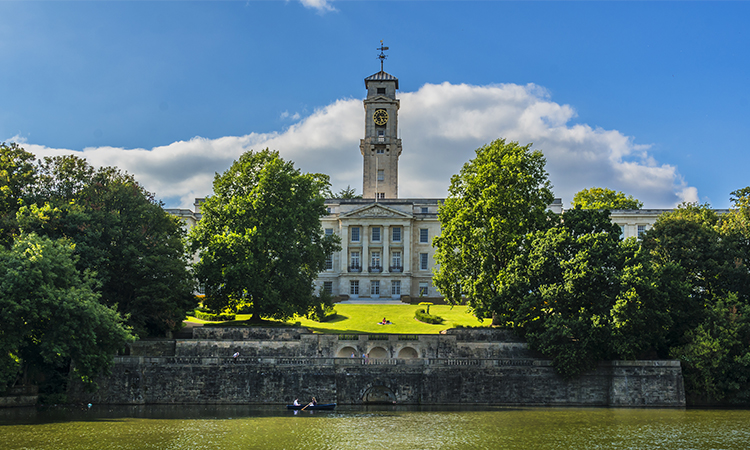University of Nottingham: Tackling global challenges together- The new collaborations building on life-changing Nottingham-Indonesia links
As global leaders head to Indonesia for the G20 Summit in November, the University of Nottingham is set to meet Indonesian Government officials in Jakarta to launch a series of new research, innovation and teaching collaborations.
The University of Nottingham is the UK’s leading institution for knowledge exchange with Indonesia, spearheading the UK-Indonesia Consortium for Interdisciplinary Sciences (UKICIS), a partnership that aims to build resilience against pandemic, climate change and natural disasters through interdisciplinary research collaboration. The UKICIS formally features in the UK-Indonesia Partnership Roadmap 2022-2024 recently ratified by foreign secretaries Liz Truss, and Retno Marsudi, as the vehicle for strengthening research and innovation partnership between the two countries.
Among the commitments being finalised in partnership with the Indonesian provincial government is a University of Nottingham Net Zero Translation Centre in Bandung, West Java – Indonesia’s most populated province – helping fulfil its energy ambitions of supplying 20% of the total energy demand for West Java’s 50 million inhabitants with renewables by 2025.
The university’s Faculty of Engineering is a global leader in net zero propulsion research and, in recent years, has worked closely alongside the Indonesian Ministry of Transport to develop policy and plans for Electric Vehicle (EV) infrastructure development across the country. The new Net Zero Translation Centre will upskill the local population and support Indonesian SMEs who are working to adapt conventional vehicles to electric propulsion.
Professor Shearer West
Our vision is one of ambition and creativity – a university without borders, embracing new opportunities and changing the world for the better.
Professor Shearer West, Vice-Chancellor at the University of Nottingham
Professor West continued: “As a leading UK university, known for the quality and impact of our research, we aim to play a leading role in developing future propulsion as society transitions to zero-carbon. Strengthening our partnerships in Indonesia gives us an exciting opportunity to expand and embed our societal impact.”
The university will also launch research and education collaborations in midwifery and cancer studies.
Just six years ago, the maternal mortality rate in Indonesia was 184 in 100,000, compared to seven in 100,000 the UK, and there were no set midwifery standards. Since then, the university has become Indonesia’s leading UK university partner in midwifery education and research, with the team developing a national Bachelor of Science Midwifery curriculum that has been implemented in more than 40 institutions.
New collaborations will see the University support the development of a new MSc Midwifery programme, and a national strategy for research and education in midwifery, aimed at developing the universal coverage which could save more than four million lives each year.
Professor Mokaya, Pro-Vice-Chancellor for Global Engagement at the University of Nottingham, said: continued: “We are tackling some of the biggest global challenges together in maternal mortality, cancer care and climate change.
39262dtp
Through our cutting-edge research and flourishing training partnerships, the University of Nottingham is supporting Indonesia’s ambitious targets to save and improve millions of lives.
Professor Robert Mokaya, Pro-Vice-Chancellor for Global Engagement at the University of Nottingham
The strong existing partnership between Nottingham and Indonesia has also been able to pave the way for revolutionary cancer research, including a recently launched, low-cost, molecular diagnostic test, which went from lab data to product launch in just three years.
Every year, more than 35,000 cases of colorectal cancer (CRC) are diagnosed in Indonesia, with around 35% manifesting in patients under the age of 50. Precision treatment in these cases is vital to improve survival rates, which is where the diagnostic test comes to the fore as it allows more effective treatment while simultaneously preventing the side-effects of unnecessary treatment.
UKICIS is a testament for Indonesia and the UK’s strong commitment in addressing global challenges through interdisciplinary research collaboration. Through various research, innovation, and teaching collaborations, we have achieved significant progress in these important undertakings.
Hartyo Harkomoyo, Director of Communications at the Ministry of Foreign Affairs
Mr Harkomoyo continued: “UKICIS also plays an important role in collaborating with Indonesia’s MoFA to address emerging issues on digital diplomacy through the Regional Government Social Media Conference. Last August, we shared some thoughts on how social media can support diplomacy as a tool to communicate foreign policy as well as be a platform for engagement in foreign policy making and a means for crisis communications.”
The new commitments are set to be revealed by the University of Nottingham’s Vice-Chancellor, Shearer West, during a visit to Jakarta on 6 November 2022.
Professor West added: “This visit has also provided us with time to reflect on other successes from our flourishing partnership, including the recent launch of the inaugural Indonesian International Student Mobility Awards (IISMA) for Vocational Students programme, which has seen 39 students come to study a bespoke, non-degree programme in Nottingham for four months. Student mobility programmes like this one are a key part of our growing links and I look forward to seeing what the next chapter of our collaboration holds.”
The UKICIS was formally established in 2020, between the universities of Nottingham, Warwick and Coventry, alongside Institut Teknologi Bandung, Universitas Gadjah Mada, Institut Pertanian Bogor, and Universitas Indonesia. Dr Bagus Muljadi, Assistant Professor of Engineering at University of Nottingham, is the UKICIS’ steering committee coordinator. In November 2022, the UKICIS will be joined by Universitas Hasanuddin, Institut Teknologi Sepuluh Nopember (ITS) Surabaya, and Universitas Airlangga.

